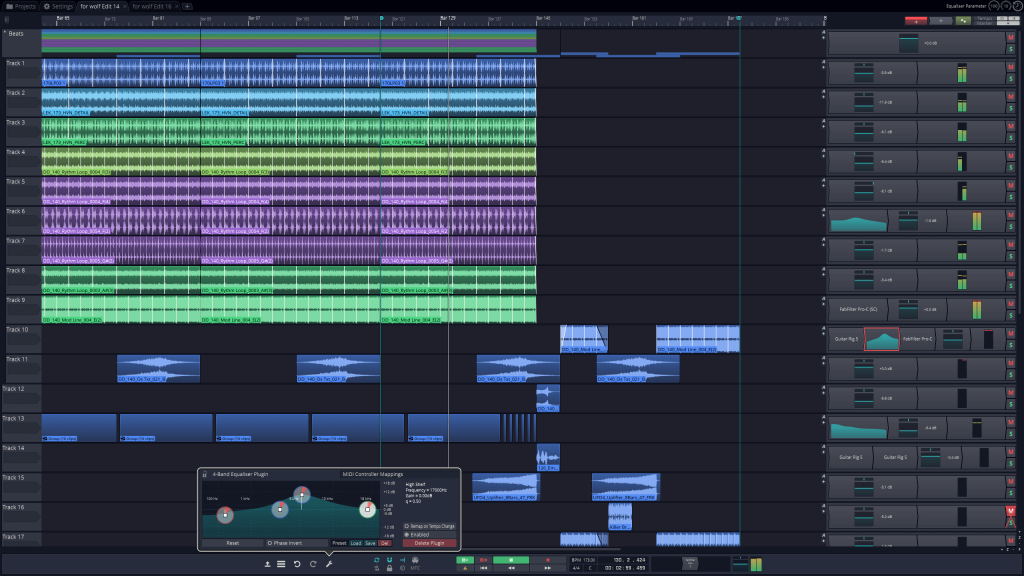
Game developers have Unreal Engine and Unity Engine. Well, now it’s audio’s turn. Tracktion Engine is an open source engine based on the guts of a major DAW, but created as a building block developers can use for all sorts of new music and audio tools.
You can new music apps not only for Windows, Mac, and Linux (including embedded platforms like Raspberry Pi), but iOS and Android, too. And while developers might go create their own DAW, they might also build other creative tools for performance and production.
The tutorials section already includes examples for simple playback, independent manipulation of pitch and time (meaning you could conceivably turn this into your own DJ deck), and a step sequencer.
We’ve had an open source DAW for years – Ardour. But this is something different – it’s clear the developers have created this with the intention of producing a reusable engine for other things, rather than just dumping the whole codebase for an entire DAW.
Okay, my Unreal and Unity examples are a little optimistic – those are friendly to hobbyists and first-time game designers. Tracktion Engine definitely needs you to be a competent C++ programmer.
But the entire engine is delivered as a JUCE module, meaning you can drop it into an existing project. JUCE has rapidly become the go-to for reasonably painless C++ development of audio tools across plug-ins and operating systems and mobile devices. It’s huge that this is available in JUCE.
Even if you’re not a developer, you should still care about this news. It could be a sign that we’ll see more rapid development that allows music loving developers to try out new ideas, both in software and in hardware with JUCE-powered software under the hood. And I think with this idea out there, if it doesn’t deliver, it may spur someone else to try the same notion.
I’ll be really interested to hear if developers find this is practical in use, but here’s what they’re promising developers will be able to use from their engine:
A wide range of supported platforms (Windows, macOS, Linux, Raspberry Pi, iOS and Android)
Tempo, key and time-signature curves
Fast audio file playback via memory mapping
Audio editing including time-stretching and pitch shifting
MIDI with quantisation, groove, MPE and pattern generation
Built-in and external plugin support for all the major formats
Parameter adjustments with automation curves or algorithmic modifiers
Modular plugin patching Racks
Recording with punch, overdub and loop modes along with comp editing
External control surface support
Fully customizable rendering of arrangements
The licensing is also stunningly generous. The code is under a GPLv3 license – meaning if you’re making a GPLv3 project (including artists doing that), you can freely use the open source license.
But even commercial licensing is wide open. Educational projects get forum support and have no revenue limit whatsoever. (I hope that’s a cue to academic institutions to open up some of their licensing, too.)
Personal projects are free, too, with revenue up to US$50k. (Not to burst anyone’s bubble, but many small developers are below that threshold.)
For $35/mo, with a minimum 12 month commitment, “indie” developers can make up to $200k. Enterprise licensing requires getting in touch, and then offers premium support and the ability to remove branding. They promise paid licenses by next month.
Check out their code and the Tracktion Engine page:
https://www.tracktion.com/develop/tracktion-engine
https://github.com/Tracktion/tracktion_engine/
I think a lot of people will be excited about this, enough so that … well, it’s been a long time. Let’s Ballmer this.
Tags:
,
,
,
,
,
,
,
,
,
,
,
,
from Create Digital Music http://bit.ly/2OOzk2L
via IFTTT
